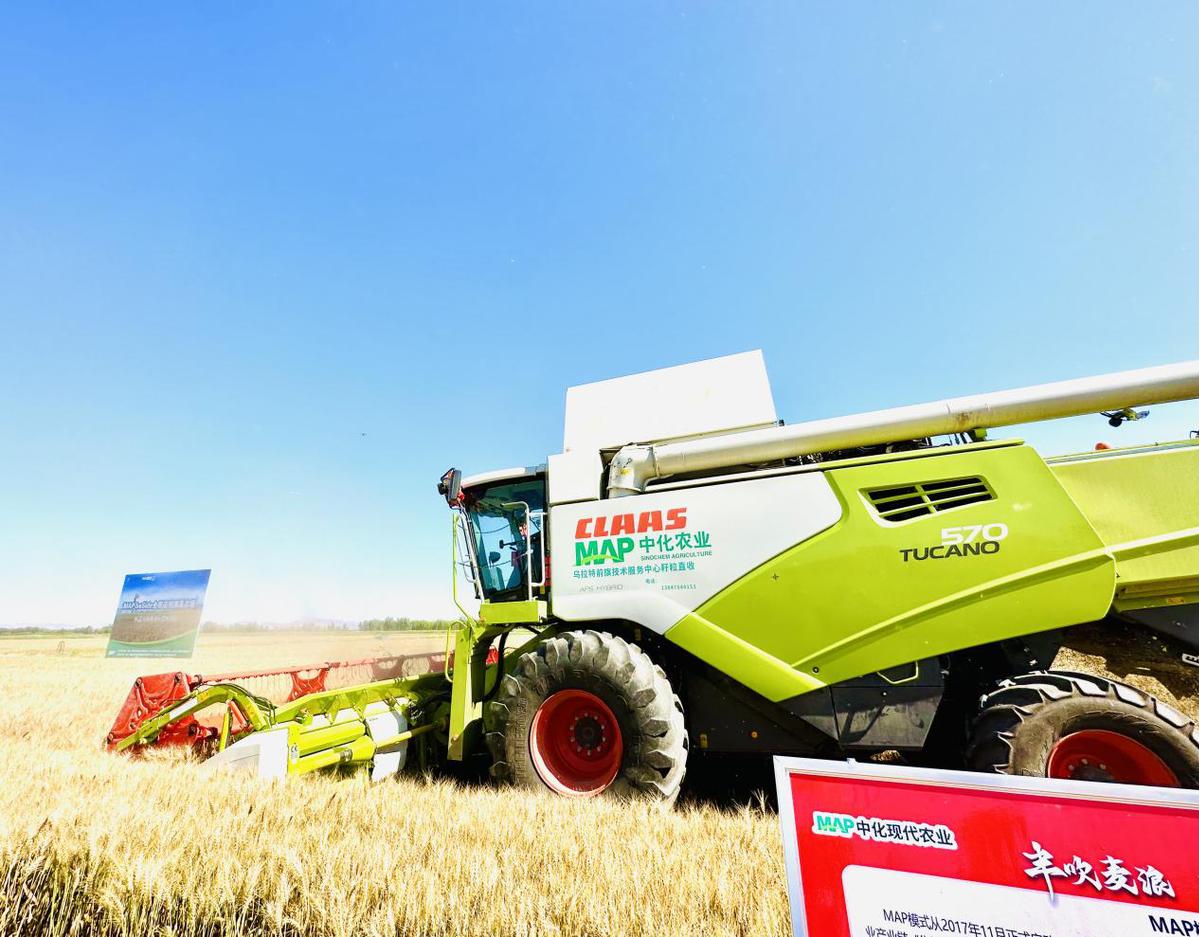Syngenta Group aims to cut water usage, improve soil quality of China's farms
By Zhong Nan | chinadaily.com.cn | Updated: 2023-07-18 17:51

Syngenta Group China, a business unit of seed and crop protection as well as nutrition product manufacturer Syngenta Group, plans to build more Modern Agriculture Platform (MAP) -themed farmland in China to help cut water usage and improve soil quality in the coming years, said an executive.
By introducing its MAP beSide, a program that helps farmers grow high quality, traceable crops in a climate-smart way, Syngenta Group China transferred 8,000 mu(533 hectares)of farmland in Xianghe village, Dawukou district, in Shizuishan, Northwest China's Ningxia Hui autonomous region and built a MAP beSide farm there in 2022.
Planted with maize, oats and other crops, the MAP beSide farm has become a demonstration base for high-efficiency water-saving agriculture and comprehensive utilization and improvement of saline-alkali land in the city, said Qin Lilong, general manager of grain crops business unit of Syngenta Group China.
"Low yield and low income of saline-alkali land previously impelled farmers to give up their land and leave the village to make a living," said Yan Bo, a local government official.
Hu Yuanfeng, head of Dawukou MAP beSide farm of Syngenta Group China, said the MAP team adopted advanced drainage technology with concealed pipes to continuously discharge saline water and constructed a large pumping station to draw irrigation water from the Yellow River. It also conducts precision and intelligent management of water and fertilizer for the farm.
"According to our calculations, more than 250 cubic meters of water can be saved for one mu of maize per year. Furthermore, water and fertilizer are applied directly to the roots of the crop through the water-fertilizer integration technology, therefore the nutrient utilization rate is also improved," said Hu.
Through the MAP program, about 3,000 mu of uncultivated land in Xianghe village has been efficiently utilized, and 3,700 mu of moderately or severely salinized land has been improved. It is anticipated that there will be an average yield increase of 50 kilograms per mu this year, he added.
























